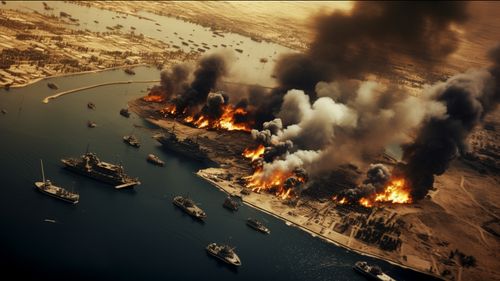A Global Power Shift: Why the Suez Crisis was so important
Dec 05, 2023 · 2 mins read
0
Share

The Suez Crisis of 1956 was a pivotal moment in history, highlighting the power struggles of the Cold War era and the complexities of international relations.
Save
Share
It began when Egyptian President Gamal Abdel Nasser nationalized the Suez Canal, a vital waterway controlled by Britain and France, sparking tensions over control and access.
Save
Share
Britain and France, fearing loss of control and access to the canal, colluded with Israel to intervene militarily and reclaim the canal, disguising their intentions under the pretext of restoring order.
Save
Share
The crisis escalated as British and French forces invaded Egypt, aiming to seize control of the canal zone, leading to global outrage and condemnation, especially from the United States and the Soviet Union.
Save
Share
However, pressure from the US and the USSR, combined with international condemnation and the threat of economic repercussions, forced Britain, France, and Israel to withdraw their forces from Egypt.
Save
Share
The Suez Crisis marked a turning point in global politics, showcasing the diminishing influence of European powers and the rise of the US and USSR as dominant players on the world stage.
Save
Share
It exposed the limitations of military force in resolving international disputes and highlighted the growing importance of diplomatic solutions and international cooperation.
Save
Share
The crisis had long-term consequences, weakening Britain and France's global influence while strengthening Nasser's position as a prominent leader in the Arab world.
Save
Share
It also paved the way for a shift in global alliances, with many former colonial territories seeking alliances with the US or the USSR rather than their former colonizers.
Save
Share
Ultimately, the Suez Crisis left a legacy of reshaped geopolitics, emphasizing the complexities and challenges of navigating international conflicts in a changing world order.
Save
Share
0